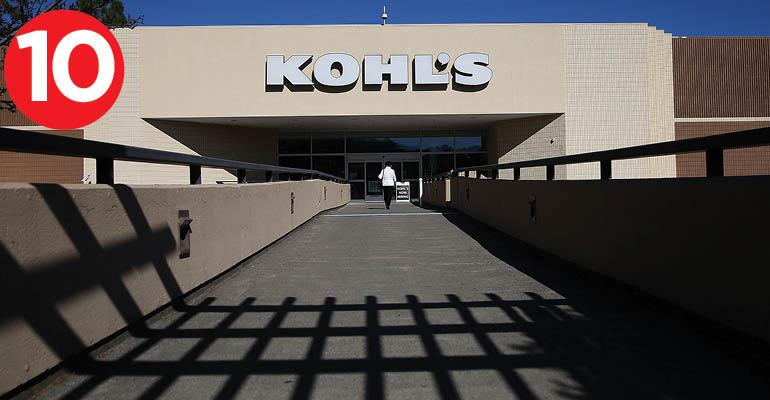- The Company That Sold Love to America Had a Dark Secret “The pay-and-promotions lawsuit against Sterling Jewelers Inc. began the way a lot of these things begin: In 2005, Dawn Souto-Coons walked out of the jewelry store where she had been a successful assistant manager and into a local Tampa-area employment office, claiming sex discrimination in her store. She had been working at a Jared the Galleria of Jewelry for nearly four years. But it was only in the last few months that she began to understand that the thing that kept happening to her there, the thing that seemed to keep happening to so many of the women there, went beyond the regular, standard-issue sexism she had been hearing about her whole life. But what woman is certain that the problem isn’t her, but them?” (The New York Times)
- No More Loopholes: SF Landlords Must Now Register Vacant Properties “San Francisco landlords must now register their empty storefronts with the city or face a hefty annual fine. A new law that went into effect Monday requires building owners to register a vacant or abandoned storefront within 30 days of it becoming empty, regardless of whether it is advertised for sale or lease. The annual registration fee is $711, and the cost for businesses that do not comply is a one-time penalty of $2,844.” (San Francisco Chronicle)
- CBOT Building Going Up for Sale “The owners of the Chicago Board of Trade Building are putting the landmark tower up for sale, looking to cash out with a big profit as investors continue to bet on the downtown office market. A joint venture of Chicago-based developer GlenStar Properties and Los Angeles-based private-equity firm Oaktree Capital Management is seeking more than $330 million for the 44-story office building at 141 W. Jackson Blvd., according to sources familiar with the offering.” (Crain’s Chicago Business)
- Kohl’s Will Accept Amazon Returns at All of its Stores, Stock Soars “Kohl's Corp. stock soared 7.7% in Tuesday trading after the retailer announced that it would now accept Amazon.com Inc. returns at all its stores. Kohl's first announced that it would pilot the returns program in September 2017, operating in 100 stores in Los Angeles, Chicago and Milwaukee. Now customers will be able to return Amazon merchandise to all 1,150 Kohl's locations. Kohl's is also carrying Amazon products in more than 200 stores.” (MarketWatch)
- A Case Study in Innovation: How Convene Reinvented the Commercial Real Estate Industry “I recently interviewed Ryan Simonetti co-founder and CEO of Convene. What I loved about the Convene model is that it displays the core element to transformation – taking one industry model and transplanting it into a related but different industry … in this case incorporating hotel concierge services into commercial real estate. Convene has quickly grown from 2009 start-up to 600 people in 27 locations, to become a new industry standard including winning many awards like Fortune Magazine Most Promising Companies, and Inc. Magazine Best Workplace.” (Forbes)
- A Real Estate Mogul Seeks to Expand His Influence Over Los Angeles “Rick J. Caruso was getting excited. In a few weeks, the real estate mogul’s beachside resort in Montecito would open its doors, and the project, more so than his others in Los Angeles, was a personal one. The family crest is etched above the outdoor fireplace. The booths in one of the restaurants are inspired by Perino’s, a long-shuttered Hollywood eatery where Mr. Caruso hung out. The sundries shop is run by his friend Gwyneth Paltrow.” (The New York Times)
- Here’s What You Need to Earn to Afford a Home in the Biggest U.S. Cities “No surprise: The biggest spikes belong to the coasts. Specifically, technology-rich Silicon Valley, led by San Jose and San Francisco, dominates the list of the most-expensive metros, while the Midwest and the South occupy the other end of the affordability spectrum. Cost-estimating website HowMuch.net used data from mortgage information site HSH Associates to create this map of the United States.” (MarketWatch)
- SF Gets Another Big Pot of Free Money—Supes Want Affordable Housing to Top List “San Francisco is all but certain to get another multimillion-dollar windfall this year — and one supervisor wants at least half of it to go toward alleviating the city’s housing crisis.Supervisor Sandra Lee Fewer said the city expects about $140 million to fall into the city’s general fund for fiscal year 2019-20. If the city receives the money, Mayor London Breed and the Board of Supervisors will have free rein on how to spend it.” (San Francisco Chronicle)
- Silicon Valley’s Office, R&D Markets Off to Slow Start in 2019 “According to Cushman & Wakefield's latest Silicon Valley's Office and R&D sector report, Silicon Valley's tech space is off to a sluggish start in 2019, after having combined for a robust 2.85 million square feet (msf) of occupancy growth in 2018 -- largely stemming from the office sector. While the office market did continue its growth trend reporting another 269,000 so of positive net absorption in the first quarter, the R&D sector finished with a negative 265,000 sf, leading to a virtual wash between the two sectors. Notably, both sectors maintain very healthy single-digit vacancies coupled with rent growth, while demand remains strong.” (World Property Journal)
- Harnessing AI to Find Alpha in Real Estate Investment “For some time now, tech-based innovations have been reshaping the way things are done across almost every industry. Despite this, the world of commercial real estate has dragged its feet, clinging tightly to its traditional ways. Even when compared to other investment markets, commercial real estate is a dinosaur. The stock market long ago adopted new core innovations and continues to do so—even the conservative bond market is following suit.” (Commercial Observer)
0 comments
Hide comments

